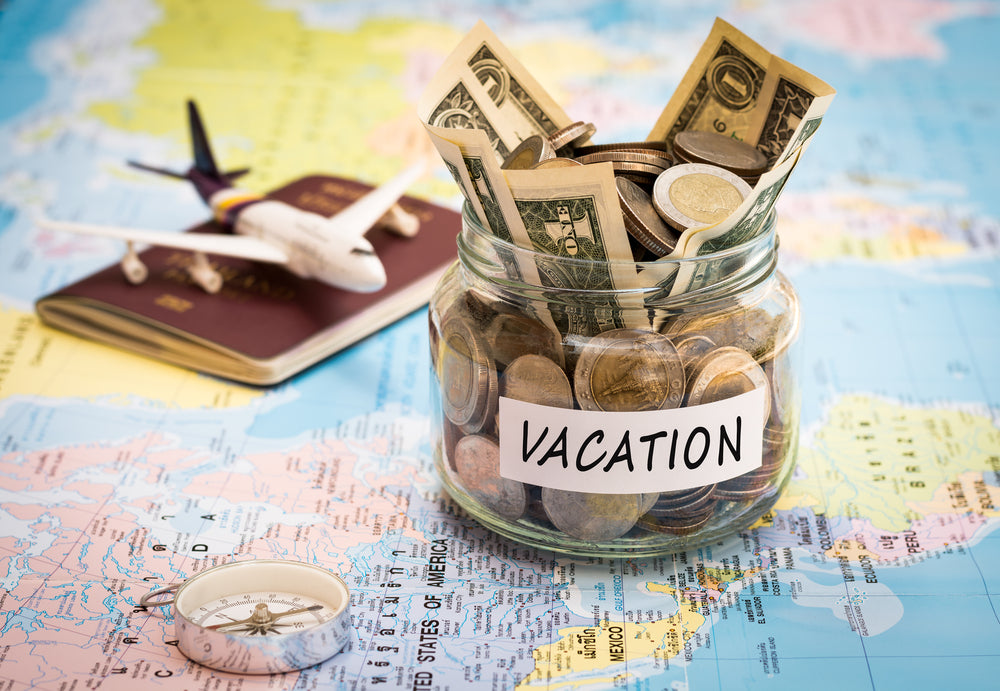Free U.S. Shipping On Orders Over $150

How to Plan Your Budget for a Trip
Posted on
Budgeting is one of the most important parts of planning for a trip. But it’s not just about putting together a list of expenses. You need a budget that matches your goals for the trip. You'll also need to do lots of research to create a good and realistic budget.
Whether you are traveling on a budget or you are planning to splurge, here are some great tips on how to plan a budget for a trip or vacation.
How Much Do You Have to Spend?
The first thing to decide, before you even begin doing any research, is how much you can afford to spend on your trip. This will guide your decisions regarding where to, what to do and so on.
It will also determine whether this will be a budget trip (which changes a lot of things including how far you travel) or if you can afford to indulge.
It’s a good idea to split your budget into categories. Come up with rough estimates of how much you want to spend on travel (flights, Uber, train etc.), accommodation, sightseeing, fun activities and souvenirs. Remember to leave some portion of the money unbudgeted. That will be for emergencies or to accommodate any changes in your plan (e.g. if you find only a pricier room is available).
Start With Research
Once you have the bottomline number, you can then plan your budget, and your entire trip, around it. For now, put your budget planning aside and turn to planning for the trip.
Figure out where you are going, the activities you’d like to do, places you’d love to explore, restaurants you’d like to try out and some of the hotels you are considering staying at. At this point, don’t worry so much about how much everything costs.
Of course you should stay within a certain range (e.g. don’t consider a $5,000 a night hotel if you are traveling on a budget), but don't bother with the specifics, yet. When it comes to activities and attractions, just write down the most interesting ones that you’d like to include in your itinerary.
Narrow Down Your Trip Wishlist
Now this is where your top-level planning meets your budget. You need to whittle down your long wishlist into one that fits your budget for the trip.
Start by choosing accommodation that you can comfortably afford. Then go through your list of places you want to see and things you want to do and narrow them down to those that you’d really love to experience and which are within your budget.
You may need to run through your list several times until you end up with one that fits within your budget.
Look for Deals and Discounts
Deals and discounts can help you save money on your trip or enjoy premium activities and places without overrunning your budget.
Start with accommodation. Look for booking websites that offer discounted prices or call the facility directly to see if they can give you a discount.
You can also get good deals on fun activities and tourist attractions. This will require a bit of research or making some calls, but it will help you fit more activities in your itinerary while staying on budget. Other ways to save money on a trip include:
- Opting for group travel tours, which are usually cheaper compared to solo trips.
- Traveling during the off-season when a particular place isn’t as popular with tourists. Rates for hotels and other activities are usually lower.
- Pack smart to ensure you don't need to buy stuff at your destination. When it comes to packing clothes, our self-cleaning clothing allows you to pack light and still carry everything you need. You can wear our t-shirts and underwear over and over without having to wash them.
- Book flights in advance. You’ll spend less on tickets compared to booking just as you are about to travel.
Finalize Your Budget
Give your budget a final once-over to check that everything is good and proper. Something to keep in mind is that trip plans and budgets rarely go as expected. Something always happens and you have to be ready to adjust.
It can be as simple as finding museum charges have gone up or as disruptive as a missed flight. So even as you stick to your budget, it’s important to remain flexible. That’s why you should have a part of the budget just for emergencies and unexpected changes.
Quick links
Contact
6063 Hudson Road #160
Woodbury, MN 55125
Yo@hercLeon.com
Leave a comment: